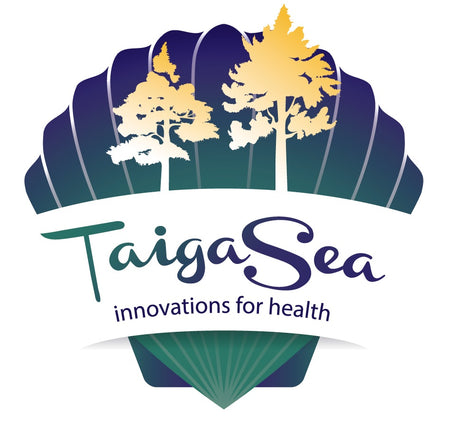Ginseng
Panax ginseng was originally used as an herbal medicine in ancient China. There are written records about its properties dating back to about 100 A.D. The name Panax means “all healing”, which describes the traditional belief that ginseng can heal all aspects of the body. Ancient Chinese people believed that ginseng can prolong life.
Panax ginseng is a slow-maturing perennial herb native to the mountain forests of north-eastern China, Korea, and Russia. The plant is cultivated extensively in China, Japan, Korea, Russia, Canada and Wisconsin in the US. Panax ginseng is one of the most heavily cultivated and widely consumed herbs on earth. Nevertheless, cultivated ginseng was proved to be much less effective than naturally grown herb. That is why the cost of wild ginseng is very high.
Panax ginseng is a tonic herb used for rejuvenate and invigorate. It is considered an adaptogen, providing non-specific protection against various mental, physical and environmental forms of stress. Clinical trials showed that Panax ginseng can be used for loss of appetite, vomiting, intestinal problems, fibromyalgia, insomnia, nerve pain, joint pain, dizziness, headache, and hot flashes due to menopause. Ginseng has shown more benefits in individuals with diseases compared to healthy individuals.
Panax ginseng contains very active triterpenoid saponins named panaxosides or ginsenosides. They do exert various effects on human organs and systems. The highest concentration of ginsenosides are in roots. Wild ginseng generally contains very high level of ginsenosides.
 |
Cultivated ginseng contains poor quantity of these active compounds. In eastern parts of Russia and China another method of ginseng cultivation is in use. Cultivated ginseng sprouts are planted into the wild taiga forest. This makes possible to obtain the herb containing active compounds in amounts very close to the wild growing ginseng. |
Up to date, about 40 ginsenosides were determined. They interact with several biological targets in human body and induce the following mechanisms:
- Improvement of blood microcirculation in heart and brain;
- Downregulated generation of reactive oxygen species and upregulated antioxidant system preventing development of various chronic diseases;
- Prevention of the neurons degeneration and prolonged life span of neural cells in brain;
- Regulation of metabolism of main mediators in central nervous system.
Due to these mechanisms Panax ginseng possesses several health benefits such as:
- Prevention of the cardiovascular disease development;
- Enhancement of brain functions, and deceleration of the numerous neurodegenerative disorders including Parkinson’s disease, Alzheimer’s disease, Huntington’s disease resulting in prolonged life of neurons;
- Improvement of thinking, concentration, memory, work efficiency, physical stamina, prevention of muscle damage from exercise and athletic endurance;
- Reduction of depression, anxiety, and general chronic fatigue;
- Boost of the immune system and increased tolerance to infectious diseases;
- Attenuation of erectile dysfunction and improvement of the men’s health.
Panax ginseng exerts much more effects proved in clinical trials. Generally, it helps to normalize function of vital systems of the bogy and reach a well-being.
References:
Benishin, C.G., Lee, R., Wang, L.C., Liu, H. Effects of Ginsenoside Rb1 on Central Cholinergic Metabolism. J. Pharmacology. 1991. Vol. 42 (4), p. 223–229.
Lee H.O., Kim J-H. A review on the medicinal potentials of ginseng and ginsenosides on cardiovascular diseases. J. Ginseng Res. 2014. Vol. 38 (3), p. 161–166.
Zhou W., Chai H., Lin P.H., et al. Molecular mechanisms and clinical applications of ginseng root for cardiovascular disease. Med. Sci. Monit. 2004. Vol. 10(8): RA187-192.
Wu, J., Jeong, H.K., Bulin, S.E., et al. Ginsenosides protect striatal neurons in a cellular model of Huntington's disease. J. Neurosci. Res. 2009. Vol. 87 (8), p. 1904–1912.
Sotaniemi, E.A., Haapakoski, E., Rautio, A. Ginseng Therapy in Non-Insulin-Dependent Diabetic Patients: Effects on psychophysical performance, glucose homeostasis, serum lipids, serum aminoterminalpropeptide concentration, and body weight. Diabetes Care. 1995.Vol. 18 (10), p. 1373–1375.
Lee N.H., Son C.G. Systematic Review of Randomized Controlled Trials Evaluating the Efficacy and Safety of Ginseng. J. Acupunct. Meridian. Stud. 2011. Vol. 4 (2), p. 85-97.
